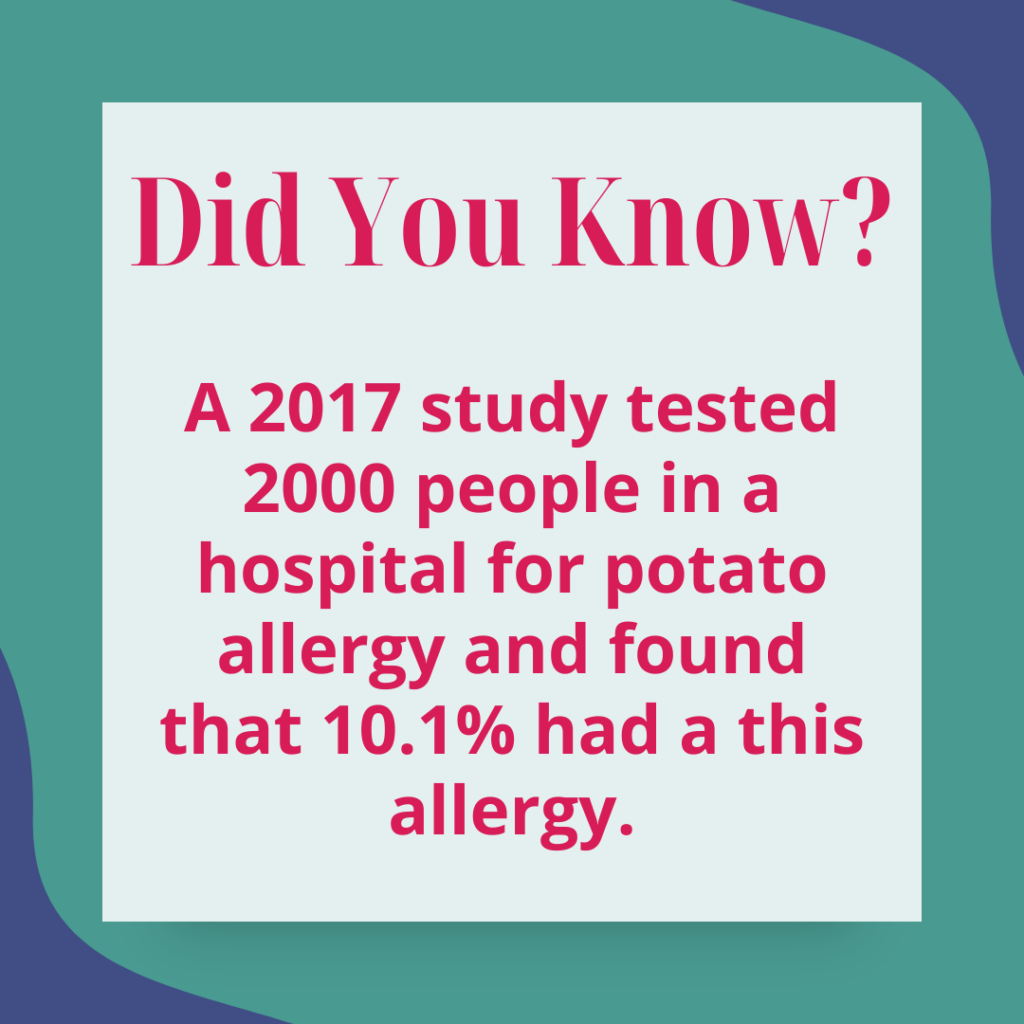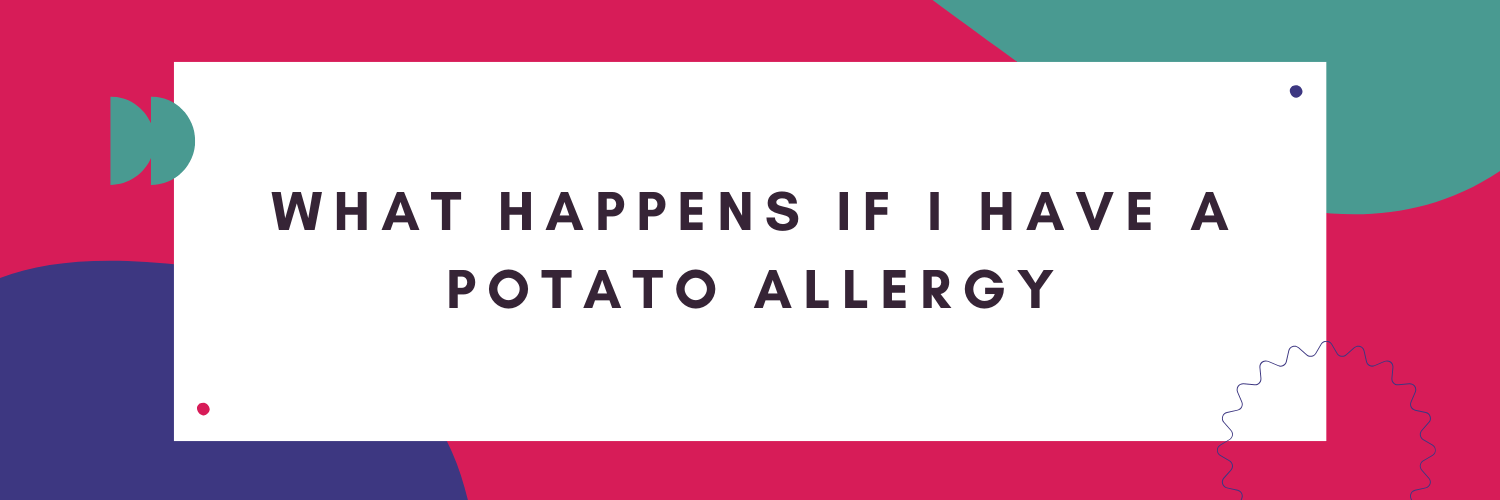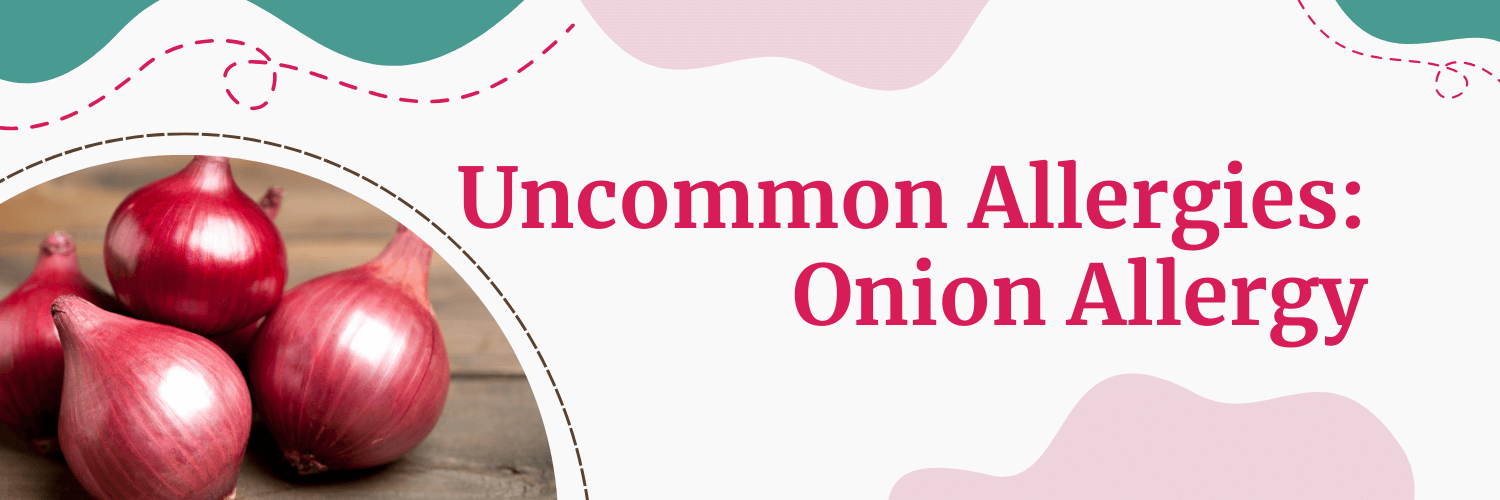A potato allergy is an adverse immune reaction following the consumption of potatoes. When you have a potato allergy, you’ll experience an adverse immune response to proteins present in potatoes. Often, these proteins are harmless, but when you have an allergy to them, your body reacts as if it were a virus or bacteria invading the body.
A potato allergy causes your body to produce antibodies like immunoglobulin (IgE), which triggers the production of histamines and other chemicals. When these chemicals flood your bloodstream, they cause allergy symptoms because no bacteria or viruses can be found.
Potato allergy is relatively uncommon compared to other food allergies like eggs and peanuts. The severity of this allergy varies from one individual to the next. While some people experience mild symptoms solved by over-the-counter antihistamines, others may experience anaphylaxis, which requires immediate medical attention, or else one may lose their life.
Potatoes are a significant part of diets worldwide as they’re widely grown worldwide. It’s common to find most snacks made from potatoes. Potato allergy can start at any age, and some people can be allergic to raw and cooked potatoes.
Symptoms of potato allergy
You can experience potato allergy symptoms immediately or briefly after touching or ingesting potatoes or their proteins. If you have a this allergy, you may experience symptoms like rashes on your skin while peeling potatoes. Upon biting food with potatoes, you might also experience a tingling sensation on your lips.
Common symptoms you’ll witness include:
- Sore or scratchy throat
- Itchy skin or an eczema-like rash
- Hives
- Diarrhea
- Sneezing
- Runny nose
- Watery, swollen, or itchy eyes
- A drop in blood pressure
- Anaphylaxis
- Swelling of the mouth, tongue, or throat
- Difficulty breathing
- Tingling on the lips
- Rapid heartbeat
- Wheezing
- Vomiting
Potato allergy cross-reactivity
Potatoes are members of the nightshade family. This family includes various vegetables and plants. So, if you have a potato allergy, you may also experience symptoms upon consuming other foods in this family. Some of these include:
- Eggplant
- Tomatillos
- Tomato
- Peppers, including chilli peppers, bell peppers, and pimientos
- Tobacco
- Spices like cayenne pepper, red pepper flakes,
- and paprika
- Goji berries
Cross-reactivity happens when your immune system reacts to proteins in one food as if they were one of the substances you’re allergic to. This mostly happens when the other food item has proteins similar to the one in the food that you’re allergic to.
A food allergy reaction happens when your immune system recognizes certain substances as “harmful.” This concept also happens in cross-reactivity. Cross-reactivity occurs when proteins in one food item are structurally similar to those of a substance you’re allergic to. As a result, your immune system reacts to both items even though you’re not allergic to one.
The immune system cannot recognize these proteins’ differences and chooses to react to both items. Regarding potato allergy, there’s a cross-reactive reaction to allergies like grass pollen, birch pollen, latex, mugwort pollen, and cooked potatoes.
Risk of potato allergy
Having another allergy is a risk factor for developing potato allergy. So, if you have other food allergies, look out for potato allergy.
Potato allergy is uncommon, but it can affect anyone. Scientists are unaware of how many people suffer from potato allergy. However, a 2017 study tested 2000 people in a hospital for potato allergy and found that 10.1% had a this allergy. Most of these individuals had an allergy to raw, uncooked potatoes.

This study may not reflect the general public because it was done in an allergy clinic where people who came in already suffered from other food allergies. Even though the above study didn’t find individuals with severe allergic reactions to potatoes, there have been several reports of anaphylaxis from cooked and raw potatoes.
Children can outgrow potato allergies. However, if you develop this allergy as an adult, you will likely always deal with it. Eliminating potatoes from your diet would be a great path to tread when you have this allergy. Additionally, if you’re unsure if you have a potato allergy, an Allergy Test will help you know for sure.
Foods to avoid with a potato allergy
You must be an avid label reader if you’re allergic to potatoes. Sometimes, potatoes can be a hidden ingredient in some foods, so reading labels carefully will help you prevent accidentally consuming foods with potatoes. You can find potatoes as ingredients in different foods. These include:
- Thickeners: Dried, cooked potatoes are used as thickeners in processed foods like stew or soup.
- Potato flour: Potato flour substitutes wheat flour in pre-packaged foods or restaurants.
- Potato starch: Many processed products like candy use modified potato starch as an ingredient.
- Vodka: Many types of vodkas are made from potatoes
- Shredded cheese may contain potato starch; read the ingredients carefully to be sure.
Potatoes are versatile foods. In herbal medicine, potatoes are used to soothe an upset stomach. Additionally, they’re used in topical treatment to reduce skin inflammation and boils. So, check the potato ingredients list when you get prescriptions for skin inflammation issues. Let your doctor know that you have a potato allergy so they can find other alternative topical treatments for you.
Always double-check every over-the-counter medication and herbal treatment you buy. Your pharmacist should be aware of your allergies when purchasing over-the-counter medicines.
Final thoughts
Potato allergies are uncommon, but considering the amount of food we consume with potatoes, it can be bothersome to deal with them. It’s common for people with potato allergies to suffer from other allergies like latex, nightshade vegetables, and other plants. If you have a potato allergy, take an Allergy Test to find out.





